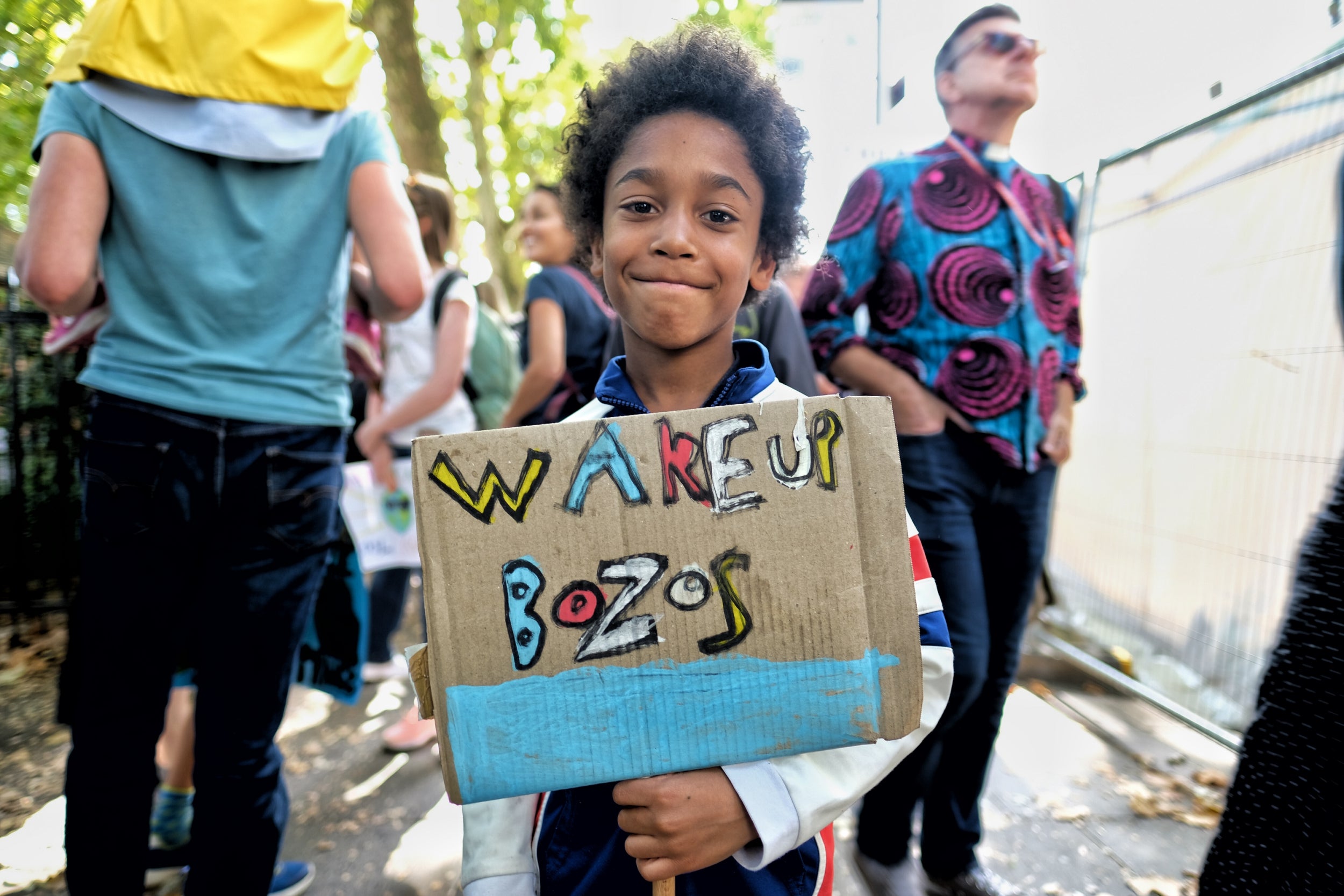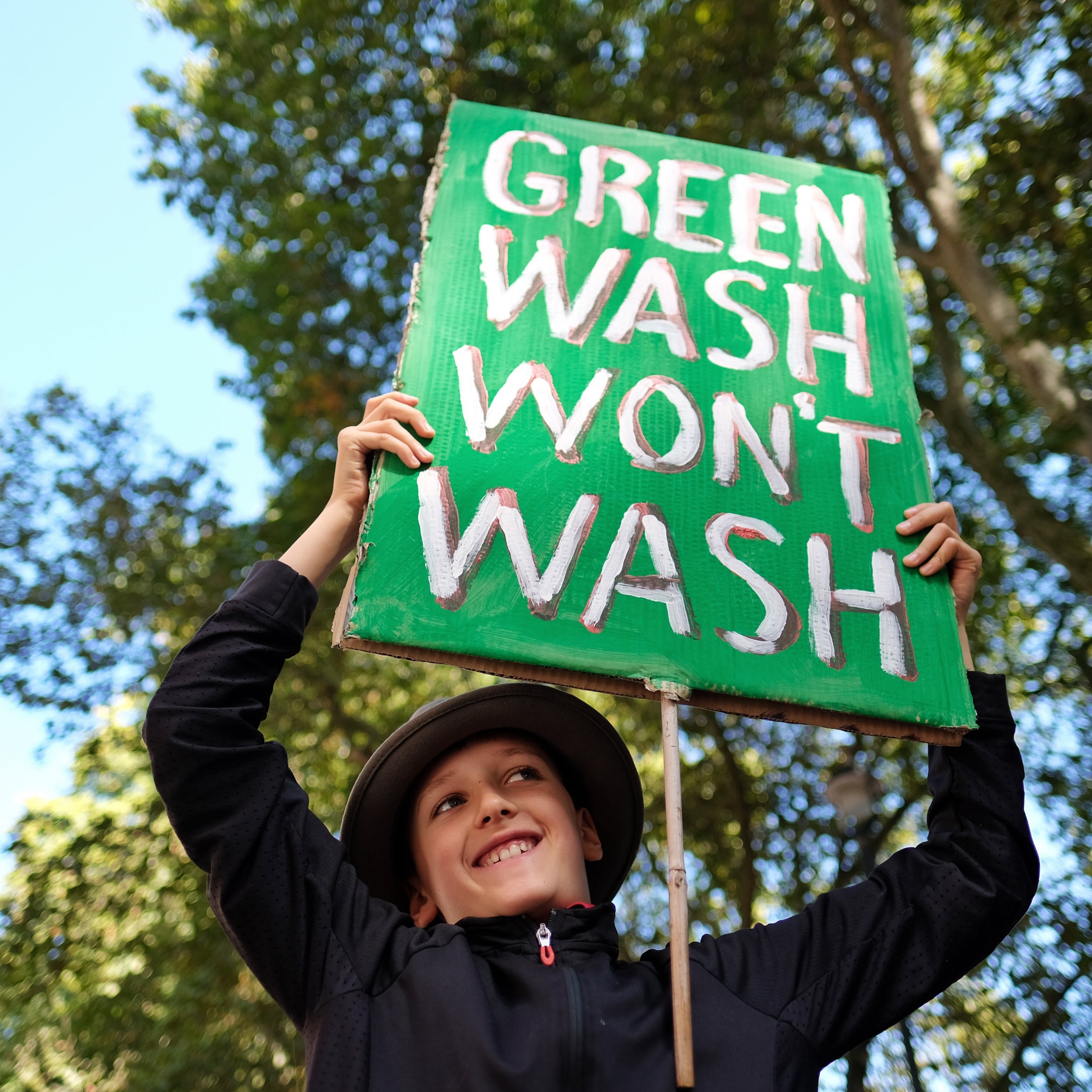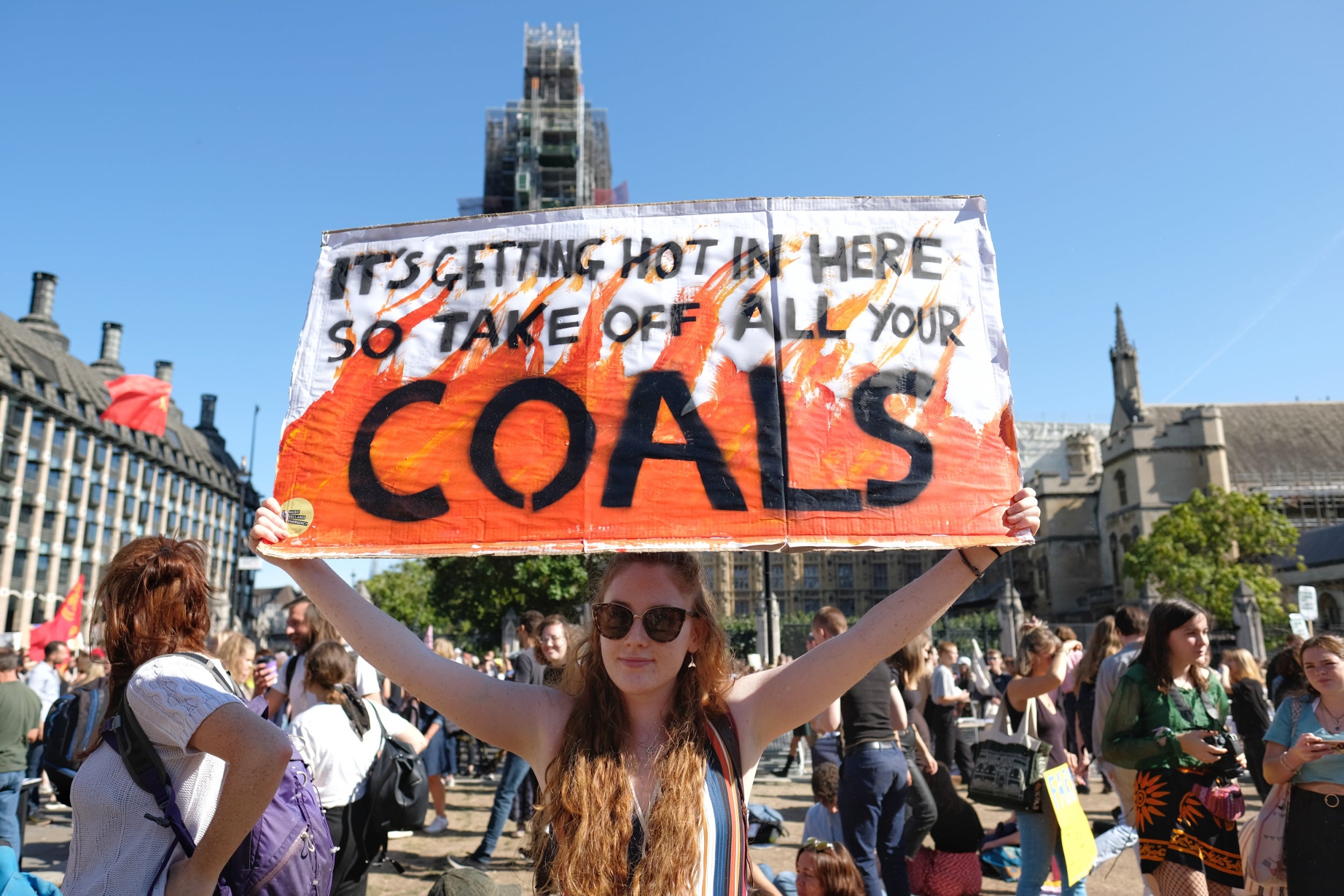https://www.independent.co.uk/news/education/education-news/climate-change-school-strikes-mental-health-students-children-a9225081.html?fbclid=IwAR2uo5lP6dkeURHJO50jlZYs3dJx4Z4h-1pg98Xr0fXaN4sDvgcNS2c9m7w
Climate change activism is reducing symptoms of mental ill-health among young people, headteachers and psychotherapists have said.
People are increasingly reporting anxiety about climate change, a phenomenon known as “eco-anxiety”, but experts say taking collective action on the issue has boosted students’ wellbeing.
The comments come as thousands of young people across the country are expected to walk out of school and lectures on Friday to demand politicians take urgent action on climate change.
Young people are being given a greater sense of agency as part of the global youth-led movement which has grown exponentially in the past year, according to psychotherapists and school leaders.
Alison Roy, from the Association of Child Psychotherapists, said climate change activism has helped to “counteract powerlessness and the sense of being done to” among children and teenagers.
Show all 50
“A lot of young people feel mollycoddled and a bit controlled. To have a role where they feel people value their opinion is massively important,” Ms Roy, a child and adolescent psychotherapist, said.
Graham Frost, headteacher of Robert Ferguson Primary School in Cumbria, has seen a reduction in anxiety among pupils who have been involved in a campaign to raise awareness of climate change.
He said: “It made them feel more positive. They felt as if they were doing something about it.”
Mr Frost added that the children who attended the school climate change strikes in September returned “buoyed up” and determined, whereas pupils who did not attend remained worried.
“I think it is both feeling a sense of personal agency and also the potency of standing shoulder to shoulder with other activists which helps overcome a sense of powerlessness,” he said.
Psychotherapist Caroline Hickman has spoken to parents and teachers in recent months who say they have seen children’s wellbeing improve as a result of climate change activism.
Independent news email
Only the best news in your inbox
“Activism or joining groups will reduce anxiety,” Ms Hickman, who is a teaching fellow at the University of Bath and a member of the Climate Psychology Alliance, said. “It will reduce a sense of isolation.”
Jenny Brown, headteacher of the City of London School for Girls, believes an increased focus on sustainability and climate change is reducing negative behaviours, like self-harming, among teenagers.
She told The Independent: “The anger and disenchantment they feel politically takes them out of just a narrow view of themselves and what their body is doing. It is a direction of travel.”
Ms Brown added that going outside and meeting like-minded people can be “healthy” for young people.
In September, tens of thousands of young people took to the streets around the world as part of the largest climate protest in history.
The strikes, which have been taking place nearly every month since February, were inspired by the teenage Swedish activist Greta Thunberg, who has been calling on world leaders to take urgent action.





沒有留言:
張貼留言